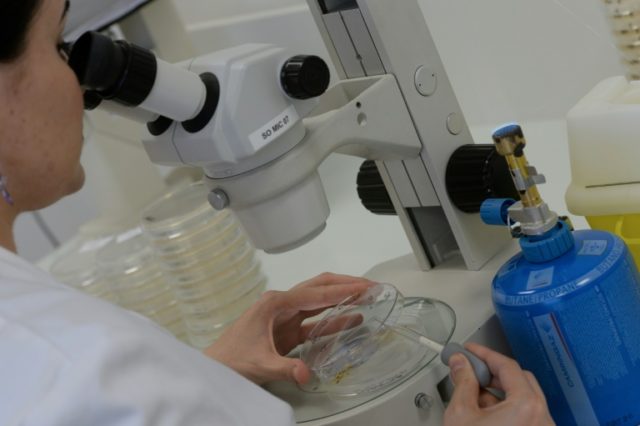Scientists from the University of Massachusetts Amherst, have invented a smartphone device that could help to prevent food poisoning.
NPR reports that scientists from the University of Massachusetts Amherst have invented a new smartphone device and app that could help users detect harmful bacteria in food. Currently, the main method used to identify food bacteria such as E. coli or salmonella is DNA testing which is a long and costly procedure. Scientists will collect bacteria from foods such as raw spinach or chicken skin by rinsing it in water and analyzing the bacteria in that water over a period of 24 hours, this, of course, takes time and money.
UMass microbiologist Lynne McLandsborough stated, “Bacteria can be in the very, very low numbers, and cause illness… So that detection needs to detect low numbers.” McLandsborough is working alongside Lili He, a food science professor at UMass to develop a tool to detect harmful bacteria in food that they claim is much simpler. The tool uses a smartphone app and a $30 microscope attachment to analyze food and determine if food poisoning bacteria are present. The device uses chemically-coated chips that bind to bacteria to reveal the problem under a microscope.
Adam Salhaney, an undergraduate in He’s lab demonstrated how the device works with an iPhone 7, saying, “You can take this … microscope attachment for any smartphone and you can clip it right onto the camera.” The microscope attachment was pointed at a gold chip coated with salmonella, which Salhaney was able to enlarge on the smartphone showing a number of black dots on the chips — the black dots were bacteria.
The scientists claim that they’ve been contacted by several food processing companies about their technology but that the device is still several years away from the public market. McLandsborough stated, “Right now, this is really preliminary. We can detect bacteria with the iPhone, but we don’t know if they’re pathogenic — if they’re harmful bacteria or good bacteria.” The team is now working to develop a technique that will identify the specific type of bacteria on food.
Lucas Nolan is a reporter for Breitbart News covering issues of free speech and online censorship. Follow him on Twitter @LucasNolan_ or email him at lnolan@breitbart.com

COMMENTS
Please let us know if you're having issues with commenting.